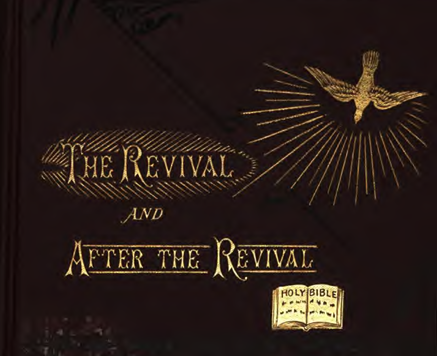Let us also be very wise in these matters. Let us restrain the impatient soul, chastise the arrogant self-seeker, and restrain the conceited Pharisee who boasts of his liberty. Let us suppress the impertinent and malicious partisan who likes to make demonstrations just “to worry the overly wise aesthetes,” silence the hysterical sister who goes into convulsions of joy or grief alike over a religious experience or a jolly story, and also the noisy brother who responds with groans and amens because he always has, likes it, and always intends to do it. For the sake of our young people, for the sake of the people of genuine religious character who believe in common sense and good taste, and for the sake of these weaklings themselves who give offense and rather glory in it than otherwise, let us hold a steady hand, reprove and rebuke with all authority, and thus promote strength and stability in the Church.
On 1 Cor. 14:33, “For God is not the author of confusion but of peace, as in all the churches of the saints,” Dr. Adam Clarke very wisely says, “God grants no ungovernable gifts.” People who act this way in the congregation shouldn’t say that God is making them do it because God is not the one who makes chaos. Two, three, or more people praying or teaching at the same time is chaos, and God is not the one who makes it. People should be careful about how they say that the God of order and peace is behind such chaos. The apostle calls such conduct ??atastas?a, tumult, sedition. Such is it in the sight of God and in the sight of all good men. How often is a work of God marred and discredited by the folly of men? Nature, as well as Satan, will always try to entangle themselves as much as possible in the genuine work of the Spirit in order to discredit and destroy it. Nevertheless, in great revivals of religion, it is almost impossible to prevent wildfire from getting in among the true fire; but it is the duty of the ministers of God to watch against this and prudently check it; but if they themselves encourage it, then there will be confusion and every evil work.
By J. H. VINCENT
Updated 2023 Nathan Zipfel
